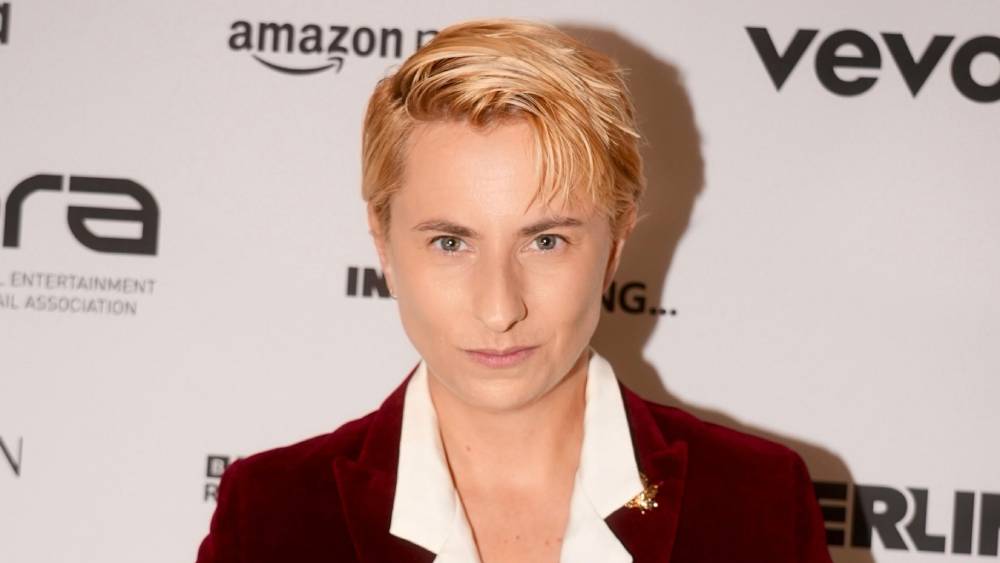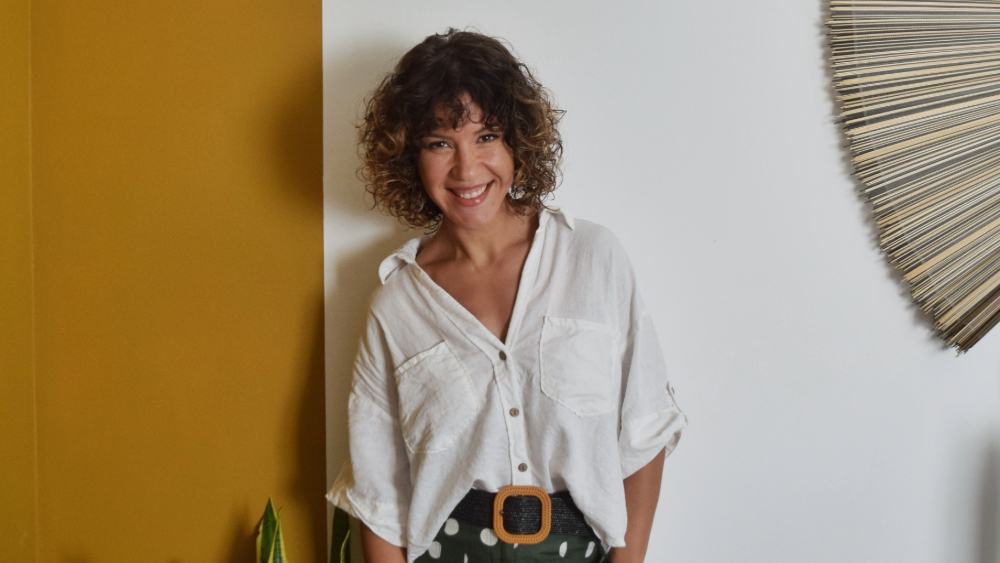There are few genres where music matters more than horror. In fact, horror movies and TV shows tend to go hand-in-hand with their scores: you could argue that our experience — and even our enjoyment — of this visual medium is shaped almost as much by the music as it is by what we see on screen.
You can just picture it: the score slowly building tension and rising to a climax, and then — aah! — a jump scare. Or, alternatively, the music gradually growing in volume and eeriness until your expectations are completely flipped — there’s no monster behind the door, and the score returns to calm once again.
‘With horror, you can really draw the audience into a world,’ says award-winning composer, producer and musician Sarah deCourcy, whose credits include horror and thriller projects like My House, The Peripheral and the recent Strange Harvest. This, she adds, makes the composer’s role a crucial one: ‘If you don’t get it right, the scene can suddenly be funny instead of scary. You have to get people into that zone of tension.’
With Halloween on the horizon, now feels like the perfect time to get Sarah's expertise for music creators who want to take on the big, bad world of horror.
Get to know the horror genre
‘There’s a big audience for horror soundtracks — I’ve done a lot of them!' Sarah tells M with a laugh. With such a rich history and a large established audience, horror soundtracks are typically associated with plenty of traditions, tropes and favoured sounds — whether it’s moody synths, sharp strings or crashing cymbals.
Sarah therefore believes it's important to understand the genre you're working in, and sometimes even draw upon and honour those familiar conventions. You could, for example, draw upon a recurring musical motif, much like the Halloween films do. ‘Lean into what works,’ she advises. ‘The traditions, the tropes, the expectations of the audience — there’s a reason so much of it works. Embrace it.’
One common mistake many new composers make, Sarah adds, is overthinking and trying to reinvent the wheel: ‘Don’t focus too much on changing the formula. [But you can] add your signature, your approach and your interpretation, as the [key] difference is the composer behind the music.’
‘With horror, you can really draw the audience into a world.'
Work with what's happening on-screen
Since music plays such a key role in the horror viewing experience, it makes sense for composers to work with the visuals clearly in mind. You can of course do this by taking inspiration from what’s happening on-screen, but, as Sarah advises, the creation process could start even earlier. ‘I like to start composing and developing ideas after reading the script, then start building a [sound] world. If you're always scoring to the emotion, then you'll probably get it right.’
What really sets horror scores apart from other genres, though, is their ability to match precise details or events in the film or TV show they're soundtracking. ‘A lot of the time, you’re scoring to the scene but not necessarily to the moment,' Sarah notes. While some scores focus on suiting the overall atmosphere or narrative arc of a scene, horror music is more tightly intertwined with the on-screen action.
‘For example, there was a scene at the end of Strange Harvest where I wanted the music to feel almost like a heartbeat — like you’re breathing with the character on screen,' Sarah says. Small details like this can really make your score work with what the viewers are seeing.
Be open to collaboration
If you want to immerse yourself in the world of composing for movies and TV, be ready for a highly collaborative process — one that often includes revisions, creative feedback and regular meetings with the film team you’re working with. ‘You’re telling a story with your music,' Sarah says of the process of working with horror writers, directors and producers. 'But it’s their story.'
This collaborative process, though, benefits both sides. ‘I love collaborating with producers and directors because they’re always music lovers, but not from inside our world,’ Sarah continues. ‘They bring the perspective of most of the people who will be watching the movie. Sometimes they’ll say something and you’ll be like, "Wow, I would never have even thought of going there."
'You want to remain open to collaboration all the time, because things can change right up until the end… They want to work with your interpretation of their story, but it’s still their story.’
But don't forget to listen your own creative instincts
When composing for horror, it’s vital to go with your gut. Sure, collaboration and feedback are both important parts of the process, but truly trusting your instincts usually leads to the strongest end result.
‘I love collaborating with producers and directors because they’re always music lovers, but not from inside our world.’
After all, if you're commissioned to compose a horror score, it’s likely that you landed that gig for a good reason. Trust yourself creatively — more often than not, you'll end up on the right track.
‘Just go with your instincts,’ Sarah says. ‘The [easy] mistake to make is trying [too hard] to score something you think [the director or producer] are going to like. You do want to make sure that everyone’s happy, but, at the end of the day, they’re hiring you for you. Don’t get sidetracked second-guessing your decisions.’
Embrace the push-and-pull of the scoring process
While it might be wise to not stray too far from the tried-and-trusted conventions of horror music, it’s just as important to know when to take a creative risk. Again, it comes back to trusting your gut — some ideas might feel risky at first, but, if you believe they’ll work, you need to trust yourself.
Sarah recalls one score she worked on where she suggested using a bassoon — not the kind of instrument you’d typically associate with horror or thriller soundtracks. But it worked: ‘I gave it a bit of a distortion, so it felt slightly more modernised and futuristic. I then brought in some clarinets to duet with it.’ Although the director was initially unconvinced, once he heard the score, he agreed it was the right choice: ‘He was like, "Oh, it's perfect". That was a case of taking a risk but also going with my gut. I thought it was the best instrument for the job.’
But if something adventurous doesn’t land, that’s doesn't have to be cause for concern. ‘The [production] team will work with you if anything needs a tweak here or there,’ Sarah adds. ‘They’ll always just say, "Can we try something else?" That’s not the end of the world.’
Strange Harvest is out now. You can follow Sarah deCourcy on Instagram.




.ashx)
